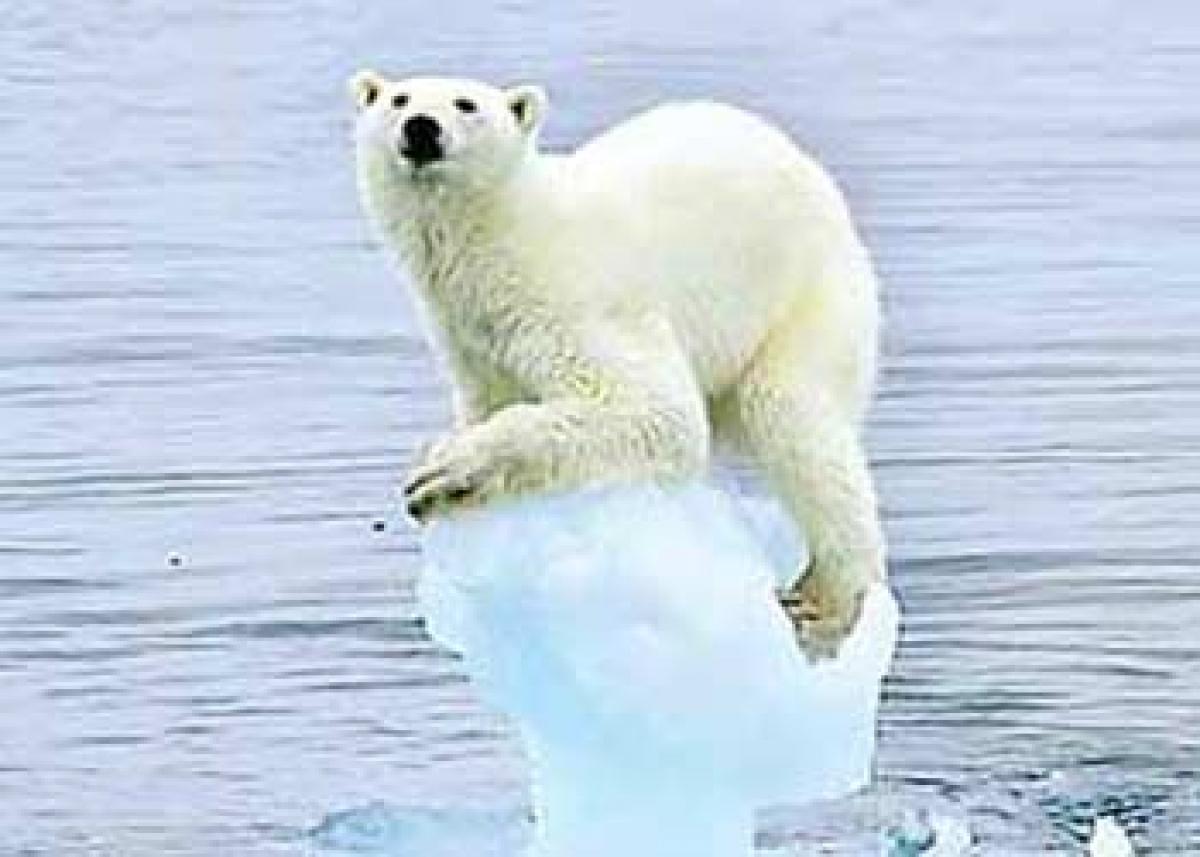Live
- Kishan Reddy realises he could not win, hence report card: BRS
- Hyderabad: Major fire breaks out at scrap godown
- TDP releases video songs highlighting AP govt’s failures
- KCR to kickstart his bus yatra from April 22
- EC observers review measures taken in Chevella LS segment
- Guntur: Kilari, Nandigam, Tenneti file nominations
- Govt releases Rs 50 cr for clearing weavers’ dues
- Vijayawada: Two-day international meet held on New Media
- BRS MLA Prakash Goud jumps ship to Cong, more to follow?
- Upbeat TDP cadres focus on one lakh majority for Naidu in Kuppam
Just In

VULNERABLE 20. Twenty of the countries most vulnerable to climate change, from the Himalayan kingdom of Bhutan to the Pacific island nation of Tuvalu formed a new group in Lima on Thursday to press for tougher action to curb warming.
 Twenty of the countries most vulnerable to climate change, from the Himalayan kingdom of Bhutan to the Pacific island nation of Tuvalu formed a new group in Lima on Thursday to press for tougher action to curb warming. Draft documents for a meeting of finance ministers in Lima, Peru and seen by Reuters, said the 20 represented 700 million people in low- and middleincome nations that were arid, landlocked, mountainous or vulnerable to rising sea levels.
Twenty of the countries most vulnerable to climate change, from the Himalayan kingdom of Bhutan to the Pacific island nation of Tuvalu formed a new group in Lima on Thursday to press for tougher action to curb warming. Draft documents for a meeting of finance ministers in Lima, Peru and seen by Reuters, said the 20 represented 700 million people in low- and middleincome nations that were arid, landlocked, mountainous or vulnerable to rising sea levels.
The V20 countries most affected by climate change are: Afghanistan, Bangladesh, Barbados, Bhutan, Costa Rica, Ethiopia, Ghana, Kenya, Kiribati, Madagascar, Maldives, Nepal, the Philippines, Rwanda, Saint Lucia, Tanzania, Timor-Leste, Tuvalu, Vanuatu and Vietnam. Estimates showed that V20 members lose 2.5 per cent of their respective potential gross domestic product to the effects of climate change each year.
The losses are expected to escalate if no significant action against climate change is implemented. The least developed, low-income and middle-income countries that contribute the least to climate change are the ones that suffer the most from its adverse effects. So it is true that this is a matter of social justice and the V20 call for accountability and global action on climate change is earnest and must be heeded.
The V20 said they accounted for just two percent of world greenhouse gas emissions but had suffered an average of more than 50,000 deaths a year since 2010 from impacts they linked to rising temperatures. They estimated that they faced "escalating losses of at least 2.5 percent of our GDP potential per year, estimated at $45 billion since 2010." The V20 meet shared experiences and resolved to work for a sovereign V20 Climate Risk Pooling Mechanism, an insurance facility to spread risks and help recovery after extreme weather events and disasters.
Ministers from the 20 nations are due to approve the documents before meetings of the International Monetary Fund and World Bank in Lima starting on Friday. Renato Constantino, executive director of the Institute for Climate and Sustainable Cities non-governmental group, welcomed the formation of the V20. He did not expect it to detract from existing groups, for instance of Least Developed Countries of the Alliance of Small Island States. "I don';t think it complicates the work. I think it clarifies the agenda for developing countries," he said.

© 2024 Hyderabad Media House Limited/The Hans India. All rights reserved. Powered by hocalwire.com







